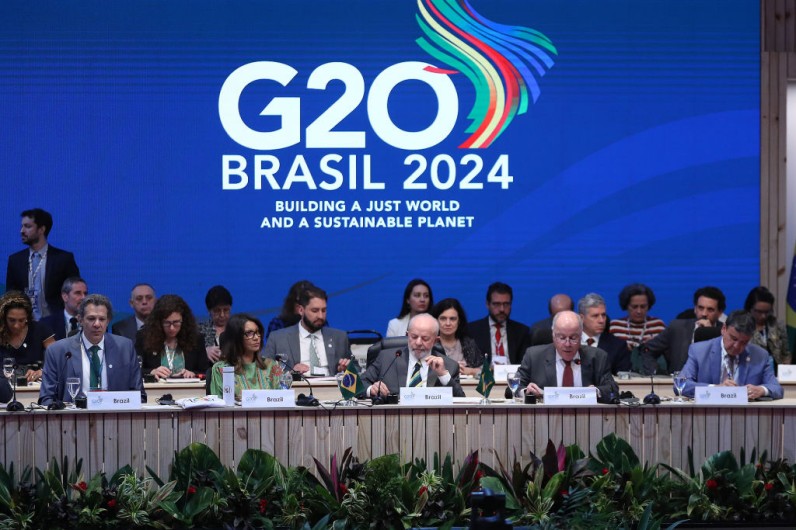
G20 finance ministers and central bankers are optimistic about the global economy's prospects, predicting a "soft landing" as they conclude their meetings in Brazil.
Reuters shared that according to the final draft of their joint communique, the global economic outlook has improved, but ongoing conflicts and geopolitical tensions remain as risks.
The draft statement, set to be formally adopted later today, focuses on an encouraging trend towards a more stable global economy. The G20 leaders noted that despite challenges, there is an increasing likelihood that the world economy will avoid a major downturn.
However, they cautioned that wars and escalating conflicts could undermine this positive outlook.
G20 on Ongoing Conflicts in Ukraine and Gaza
The communique deliberately avoids specific references to the ongoing conflicts in Ukraine and Gaza, aiming to prevent further disagreements among member nations. Instead, the document addresses the generalized risks to global economic stability, including potential geopolitical tensions and their impact on economic growth.
In their discussions, the G20 officials also pointed out the uneven nature of the global recovery. While economic activity has shown resilience in many regions, disparities between countries continue to pose challenges.
The draft stresses that technological advancements and faster-than-expected reductions in inflation could benefit the global economy, but also acknowledges potential downsides such as economic fragmentation and persistent inflation.
Climate change and biodiversity loss were major concerns in the draft communique. The draft warned that if poorer countries have to deal with climate change more than richer ones, global economic inequality could get worse.







Join the Conversation